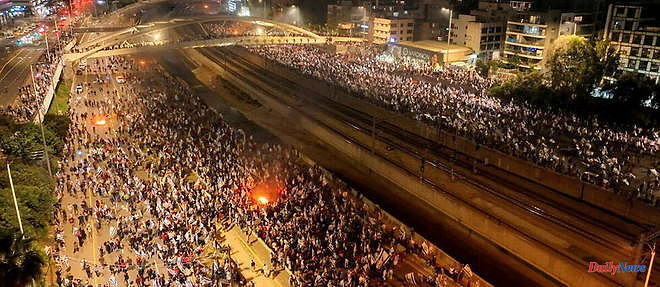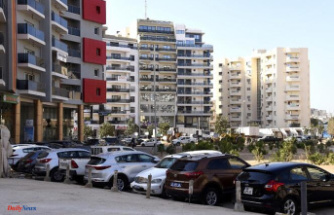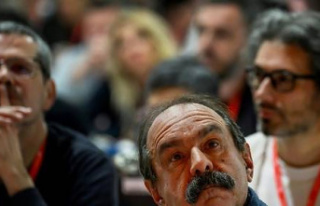The pictures are impressive. This Sunday evening, March 26, thousands of people took to the streets in Tel Aviv to reiterate their opposition to the reform of the judicial system wanted by Binyamin Netanyahu and his far-right and ultra-Orthodox allies. An unprecedented protest movement, which followed the dismissal of Defense Minister Yoav Galant, who had called for a break in the process. In the aftermath, a call for a general strike was launched by the largest trade union center in Israel.
The apogee of one of the greatest popular mobilization movements in the history of Israel, but also a turning point since Benyamin Netanyahu announced on Monday that he was putting the project "on hold", postponing the final adoption of the various reform bills in the next parliamentary session in April.
The text provides for "a derogation clause", which would allow Parliament, by a simple majority vote, to protect a law from being annulled by the Supreme Court. This is a kind of "veto power" to block the action of the Supreme Court. This would therefore significantly reduce the power of the judiciary to challenge a law. Also, opponents of these measures believe that they would give almost absolute power to Parliament.
Especially since the project also intends to prevent this institution from invalidating any new fundamental law passed by Parliament. Additionally, the conditions for the Supreme Court to strike down ordinary law have been severely tightened.
The influence of legal advisers reduced
The government also wants to reduce the influence of legal advisers within ministries. Today, their recommendations are cited by Supreme Court justices when ruling on the proper conduct of government. But the Minister of Justice wants these recommendations to be clearly considered as non-binding advice. For critics of this provision, it is a way to weaken the power of magistrates.
The appointment of judges in the hands of the coalition
The project also intends to review the system for appointing Supreme Court judges, to give more power to the government, at the expense of civil society and lawyers. Thus, while the judges are currently selected by a nine-member panel made up of judges, MPs and bar lawyers, under the supervision of the Minister of Justice, the lawyers would be removed from this panel. This would then be composed of 11 members, still under the chairmanship of the Minister of Justice: three magistrates, three government ministers, and five deputies, including three from the ranks of the coalition and two from the opposition.
Following fears expressed about the initial version, which gave a de facto majority to the ruling coalition, the voting rules were modified in committee, so as to establish a qualified majority or to impose the endorsement of at least one opposition MP in several cases.
Ministerial Appointments Removed from Supreme Court Portfolio
Last but not least, a fundamental law amendment bill, dubbed "Deri 2", seeks to place ministerial appointments outside the purview of the Supreme Court.
This follows the Supreme Court's ousting of Arie Deri as Minister of Interior and Health, on the grounds that he had been found guilty of tax evasion and therefore was not " reasonable" that he sits in government. A real snub for Benjamin Netanyahu.
These are the reasons why critics of the reform fear that it will jeopardize the democratic principles in use in Israel and weaken the judiciary in favor of the executive branch.












